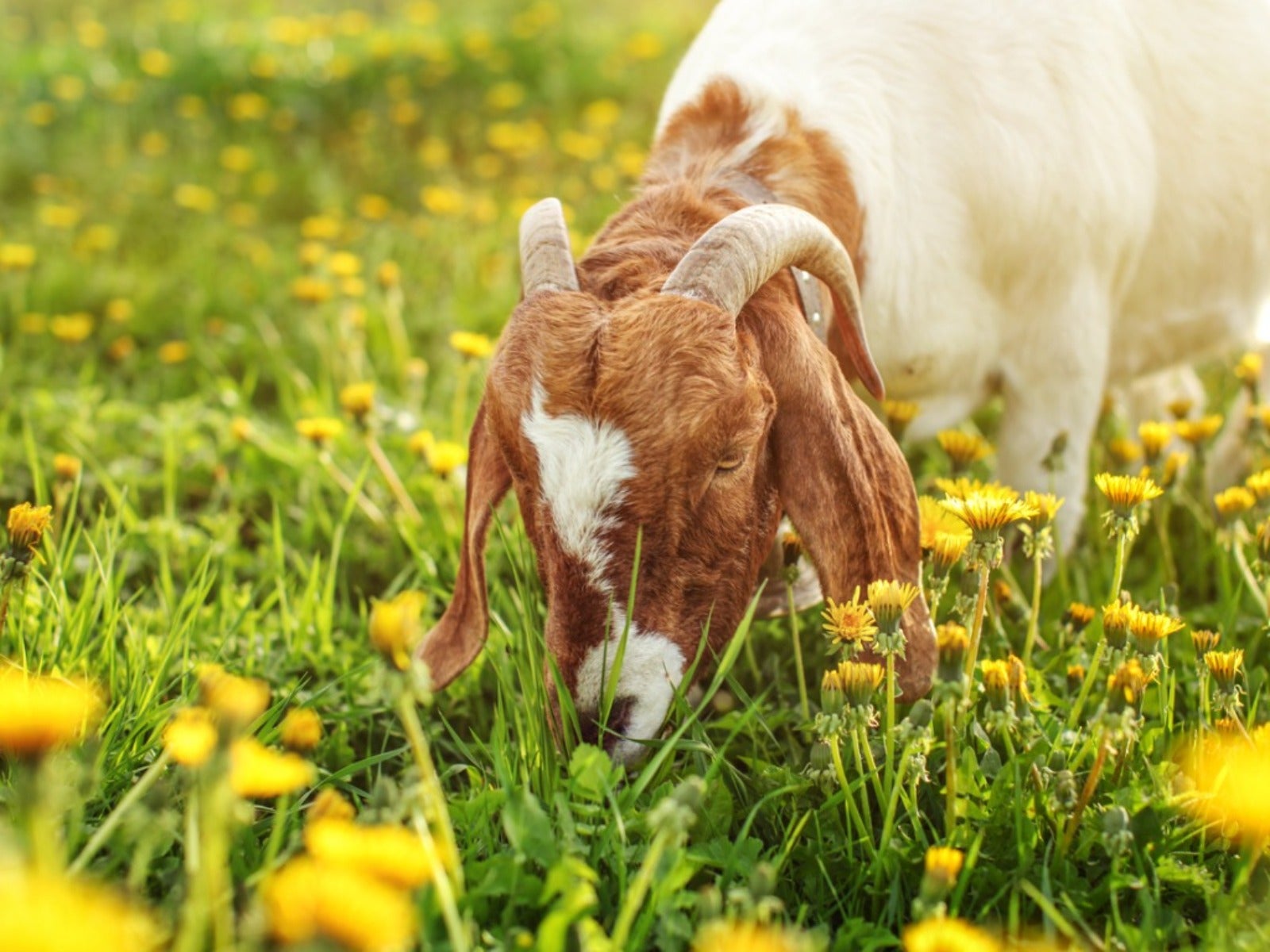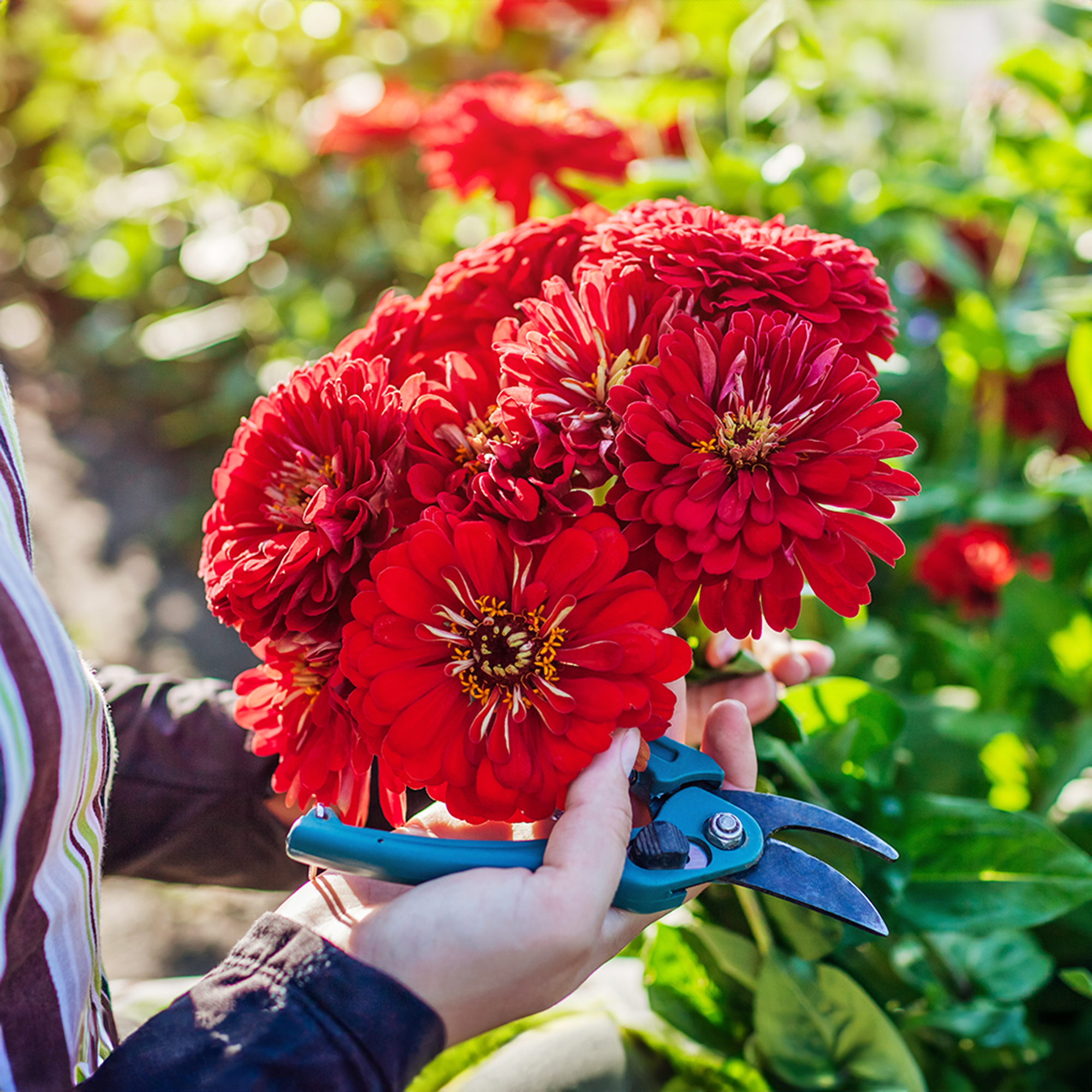Goatscaping: A Green Way To Get Rid Of Weeds

Recently you may have seen a herd of goats nimbly traversing hilly or rocky terrain within the city limits. What are the goats doing? They are goats for rent and their task is clearing brush, specifically in difficult to reach or large naturalized areas. Goat weed control is all the rage in some municipalities. It can be of benefit to the homeowner as long as they are aware of not only goat rental prices, but several other factors as well. Keep reading to learn how to rent goats for weed control.
History of Goatscaping
The practice of using goats or sheep for weed and noxious vegetation control isn’t new; in fact it’s been around for centuries. A more recent historical use for these livestock dates to WWI when sheep were used at the White House. At this time most able bodied men were serving in the war in some capacity, and thus were not available to mow the vast lawns of the “People’s House." So in came the sheep.
When the war was over, manpower replaced the sheep. But the idea of utilizing these hoofed mammals survived and is once again a viable option for clearing land.
Today the practice is referred to as targeted grazing or goatscaping, and many cities, government agencies, and homeowners are turning to goats to clear parks, right-of-ways, and other steep, difficult to navigate terrain.
Benefits of Goat Weed Control
Goats are adorable, personable, and non-toxic, but they do come with some caveats. First off, goats are great at clearing out invasive plants like English ivy, kudzu, and honeysuckle and don’t balk at burning nettle, poison ivy, or poison sumac.
Goats and sheep eat similar items, but goats have the benefit that they gravitate towards flowering weeds and woody plants, eschewing the tender green grass which is then left behind for other herbivores.
Another benefit of goats over sheep is height; not the height of the animals but rather their reach when eating. Sheep are able to clear areas up to about 5 feet (1.5 m.), while goats can climb and stretch to reach areas up to 7 feet (2 m.) from the ground.
Gardening tips, videos, info and more delivered right to your inbox!
Sign up for the Gardening Know How newsletter today and receive a free copy of our e-book "How to Grow Delicious Tomatoes".
Lastly, goats scatter their droppings randomly across the landscape as they eat, which is then broken down by microorganisms and cycled back into the soil. So goats are not only providing a way to rid an area of undesirable plants, but actually fertilizing the area at the same time.
Detriments of Goats Clearing Brush
There are several things to consider when renting goats for weed control, but perhaps the most important is that goats will eat anything. This means that if you have certain plants you don’t wish to get nibbled on, you had better protect them with something sturdy. It also means that goats aren’t an ideal method of weed control in areas that are fully landscaped -- you’ll likely lose coveted specimens.
Another downside of employing goats for targeted grazing is that it isn’t instantaneous. It usually takes more than one targeted grazing to decimate most invasive weeds. Goats can, and will, rapidly clear areas that are targeted for wildfire control, but this clearing is likely temporary. This means that the use of goats is more of a long term management technique.
Timing is also crucial. If grazing occurs too early in the season, rainfall may be sufficient to allow the vegetation to re-grow. But if the targeted plants are allowed to mature and grazing done later in the season, you run the risk of loss of edibility -- the goats won’t want to eat the mature, tough, bitter weeds. The latter scenario might mean the goats’ owner will need to provide supplemental nutrition.
Cost of Goatscaping
So, you want to rent a goat. The first thing you need to do is contact a reputable targeted grazing company. These companies are service providers and as such their experience and attention to detail are critical. When looking for a targeted grazing company, be sure to check into their background and ask for references.
Generally, a grazing contractor will provide an estimate based on acreage. This estimate should include the start time and duration. The cost of targeted grazing may depend on a number of other factors besides acreage.
The number of goats needed to clear a predetermined area will of course affect the pricing of the contract. One acre can support about six goats over time, but if the owner of the land wants more rapid clearance, additional goats per acre can be contracted and paid for.
The difficulty of the terrain may increase the cost, since loading and unloading the goats and their facilities will require extra labor. Access to water, proximity to established landscaping, toxic plants, and even the presence of other livestock or their guardian dogs can also increase the cost.
As you can imagine, these goats are valuable, but they are also prey, which means they need to be protected. This may mean setting up electric fencing or the use of guardian animals such as dogs or donkeys, which will again add to the cost of the contract.
Jobs set up on a multi-year contract are usually cheaper than those set up on a per acre basis.
If you are interested in hiring goats to clear an area, do your research and be realistic about your expectations. Goats are amazing “eating machines,” but the results will not be as perfect as mowing down an area or applying an herbicide. That said, they are an environmentally friendly solution to invasives and weeds on difficult terrain.

Amy Grant has been gardening for 30 years and writing for 15. A professional chef and caterer, Amy's area of expertise is culinary gardening.
-
 Zinnias On Repeat: 10 Glorious Cut-And-Come-Again Varieties For Endless Summer Bouquets
Zinnias On Repeat: 10 Glorious Cut-And-Come-Again Varieties For Endless Summer BouquetsThese zinnia varieties keep giving all summer, making them the perfect choice for dedicated cutting gardens – or just the occasional homegrown bouquet.
By Ellen Wells
-
 Create A Romantic Garden Straight Out Of Bridgerton: Regency Era Romance In Your Garden
Create A Romantic Garden Straight Out Of Bridgerton: Regency Era Romance In Your GardenTry some romantic garden ideas straight out of Bridgerton. Flowers and gardens in the Regency era were lush and charming and you can get the same look!
By Bonnie L. Grant